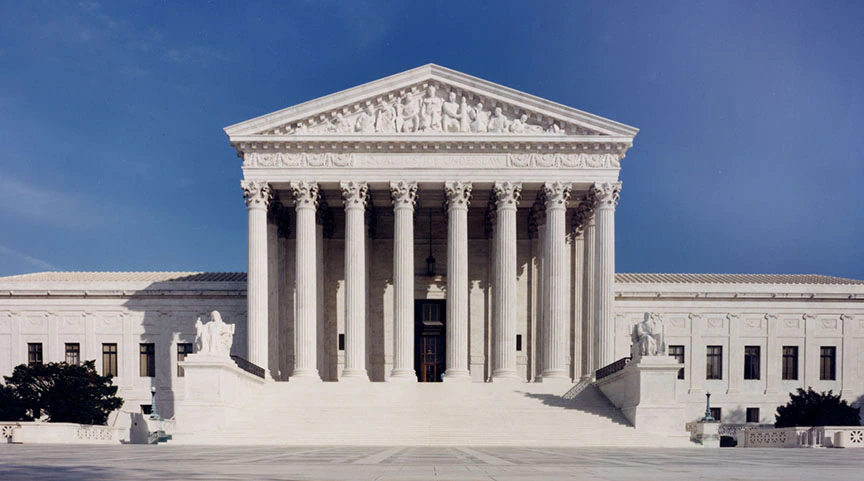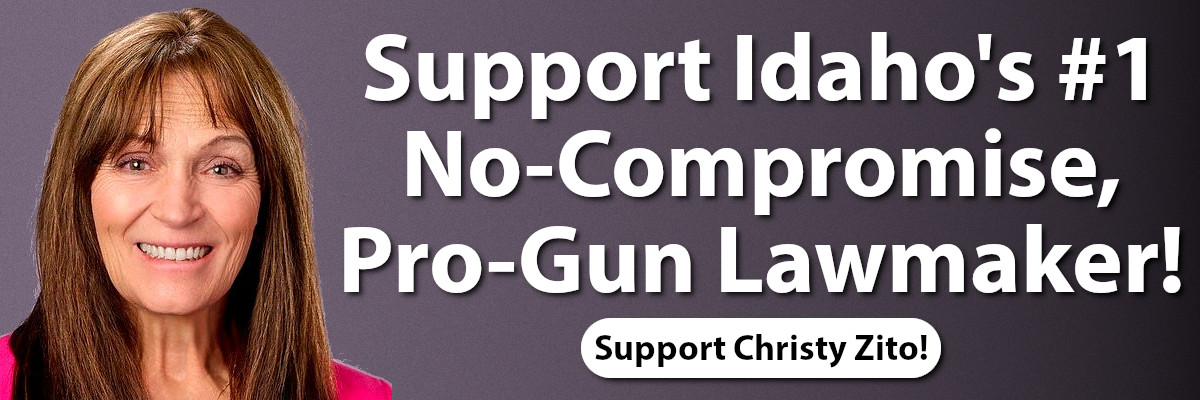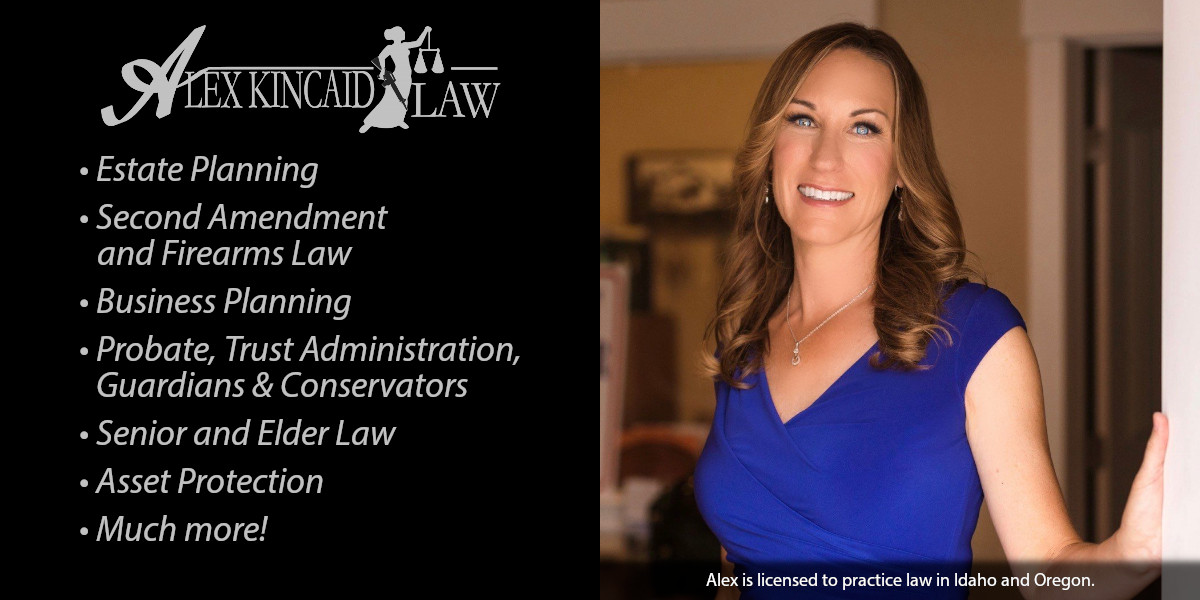
SCOTUS Delivers Three Controversial Decisions – Part 3 – Free Speech / Compelled Speech
By Sarah Clendenon • July 7, 2023In recent weeks the Supreme Court has delivered three decisions on issues of interest and importance to Americans. The topics include affirmative action, college student loan debt forgiveness, and compelled speech – a First Amendment question.
You can find the article on affirmative action here: SCOTUS Delivers Three Controversial Decisions – Part 1 – Affirmative Action – Idaho Dispatch
You can find the article on college student loan debt forgiveness here: SCOTUS Delivers Three Controversial Decisions – Part 2 – College Student Loan Forgiveness – Idaho Dispatch
CASE 3: PROTECTED SPEECH: The case regarding free speech, expression, and compelled speech stemmed from a controversy in Colorado over a web designer’s right to refuse service to customers who held beliefs contrary to her own.
Justice Gorsuch wrote the opinion of the Court. He explains,
“Like many States, Colorado has a law forbidding businesses from engaging in discrimination when they sell goods and services to the public. Laws along these lines have done much to secure the civil rights of all Americans. But in this particular case Colorado does not just seek to ensure the sale of goods or services on equal terms. It seeks to use its law to compel an individual to create speech she does not believe. The question we face is whether that course violates the Free Speech Clause of the First Amendment.”
Advertisement
The Court’s finding and opinion is that compelling someone to use their artistic and creative skills to create products which convey a message or belief they fundamentally disagree with would constitute compelled speech. The Court cites many cases and the writings of James Madison in explaining how this is a violation of inherent human rights protected by the Constitution. (Please see the Supreme Court opinion document below (pages 6 and 7) for all citations pertaining to this quoted reasoning.)
SCOTUS Free Speech Opinion“The framers designed the Free Speech Clause of the First Amendment to protect the “freedom to think as you will and to speak as you think.” They did so because they saw the freedom of speech “both as an end and as a means.” An end because the freedom to think and speak is among our inalienable human rights. A means because the freedom of thought and speech is “indispensable to the discovery and spread of political truth.” By allowing all views to flourish, the framers understood, we may test and improve our own thinking both as individuals and as a Nation. For all these reasons, “[i]f there is any fixed star in our constitutional constellation,” it is the principle that the government may not interfere with “an uninhibited marketplace of ideas”…”
The Court’s opinion continues, saying (please see pages 11 and 12 for citations),
“All manner of speech — from “pictures, films, paintings, drawings, and engravings,” to “oral utterance and the printed word” — qualify for the First Amendment’s protections; no less can hold true when it comes to speech like Ms. Smith’s conveyed over the Internet.
As surely as Ms. Smith seeks to engage in protected First Amendment speech, Colorado seeks to compel speech Ms. Smith does not wish to provide.
Consider what a contrary approach would mean. Under Colorado’s logic, the government may compel anyone who speaks for pay on a given topic to accept all commissions on that same topic — no matter the underlying message — if the topic somehow implicates a customer’s statutorily protected trait.
Taken seriously, that principle would allow the government to force all manner of artists, speechwriters, and others whose services involve speech to speak what they do not believe on pain of penalty. The government could require “an unwilling Muslim movie director to make a film with a Zionist message,” or “an atheist muralist to accept a commission celebrating Evangelical zeal,” so long as they would make films or murals for other members of the public with different messages. Equally, the government could force a male website designer married to another man to design websites for an organization that advocates against same-sex marriage. Countless other creative professionals, too, could be forced to choose between remaining silent, producing speech that violates their beliefs, or speaking their minds and incurring sanctions for doing so. As our precedents recognize, the First Amendment tolerates none of that.”
Justice Sotomayor wrote the dissenting opinion, again joined by Justice Kagan and Justice Jackson.
“Today, the Court, for the first time in its history, grants a business open to the public a constitutional right to refuse to serve members of a protected class. Specifically, the Court holds that the First Amendment exempts a website design company from a state law that prohibits the company from denying wedding websites to same-sex couples if the company chooses to sell those websites to the public.”
The dissenting opinion goes on to say,
“Around the country, there has been a backlash to the movement for liberty and equality for gender and sexual minorities. New forms of inclusion have been met with reactionary exclusion. This is heartbreaking. Sadly, it is also familiar. When the civil rights and women’s rights movements sought equality in public life, some public establishments refused. Some even claimed, based on sincere religious beliefs, constitutional rights to discriminate. The brave Justices who once sat on this Court decisively rejected those claims. Now the Court faces a similar test. A business open to the public seeks to deny gay and lesbian customers the full and equal enjoyment of its services based on the owner’s religious belief that same-sex marriages are “false.” The business argues, and a majority of the Court agrees, that because the business offers services that are customized and expressive, the Free Speech Clause of the First Amendment shields the business from a generally applicable law that prohibits discrimination in the sale of publicly available goods and services. That is wrong. Profoundly wrong. As I will explain, the law in question targets conduct, not speech, for regulation, and the act of discrimination has never constituted protected expression under the First Amendment. Our Constitution contains no right to refuse service to a disfavored group. I dissent.”
The six Justices writing in concurrence fire back at the dissenting Justices, saying,
“In some places, the dissent gets so turned around about the facts that it opens fire on its own position. For instance: While stressing that a Colorado company cannot refuse “the full and equal enjoyment of [its] services” based on a customer’s protected status, the dissent assures us that a company selling creative services “to the public” does have a right “to decide what messages to include or not to include.” But if that is true, what are we even debating? Instead of addressing the parties’ stipulations about the case actually before us, the dissent spends much of its time adrift on a sea of hypotheticals about photographers, stationers, and others, asking if they too provide expressive services covered by the First Amendment. But those cases are not this case.”
This decision cites multiple previous Supreme Court opinions involving free speech, as well as writings of the Founders, and upholds the concept that compelled speech is harmful and unconstitutional. A person cannot be forced by threat of sanctions to write, create, or use their talents to produce products or services contrary to their sincerely held beliefs.
Feature image courtesy of Home – Supreme Court of the United States
Tags: 1A, Alito, CADA, Civil Rights, Colorado, Colorado Anti-Discrimination Act, Compelled Speech, First Amendment, Free Speech, Gorsuch, Human RIghts, Jackson, Kagan, Lorie Smith, Protected Speech, Roberts, Sotomayor, US Constitution
6 thoughts on “SCOTUS Delivers Three Controversial Decisions – Part 3 – Free Speech / Compelled Speech”
Comments are closed.








Thank you again Idaho Dispatch for the rare service of publishing “real news” of significance and meaning.
The information provided in these three articles is vital for regular folks to understand complicated important court decisions that affect all American’s lives and all our futures.
These three articles demonstrate that Idaho Dispatch is a lifeline to people searching for truth that matters in news.
A government cannot force an individual to do anything at all.
It’s the individual’s choice of what path to take.
Ayn Rand’s “Atlas Shrugged” is an ultimate example of individualism.
Agreed, and I would add “Men of Honor” to that list. Also, these same freedoms should compel us to become more critical readers and thinkers to enable our abilities to make that right choice of paths.
Well said, Seven…
The three “progressive” members of the Court exposed their own hyper-partisanship and outright stupidity with this ruling. That the opinion cites the dissent’s own cognitive dissonance is proof enough that none of the three dissenters should be sitting on SCOTUS at all.
“Around the country, there has been a backlash to the movement for liberty and equality for gender and sexual minorities.”
With that one line, the three dissenting activist justices have confirmed their entire position is based on a lie.
What is a gender minority? There are two genders. There have always been two genders. There will always be two genders. And those genders are essentially equally distributed, as they always have been. So they’re basing their entire hypothetical argument on a foundation that doesn’t exist. You are male, you are female, or you are a male or female with a mental illness. Period. Unless you’re talking about the unicorns of the gender universe… hermaphrodites, then the above holds true. And even in their case, genetically, they’re one or the other, but with a physical deformity.
Unfortunately, THAT case (what is a man and what is a woman) hasn’t been tried before the courts yet. When that happens, this all goes away. Until then, any “justice” predicating their position on the assumption there are in fact more than two genders has already confirmed they’re either ignorant, delusional or intellectually dishonest. None of the three should be permitted on the court.
Balls and Breasts, the devil made the rest!